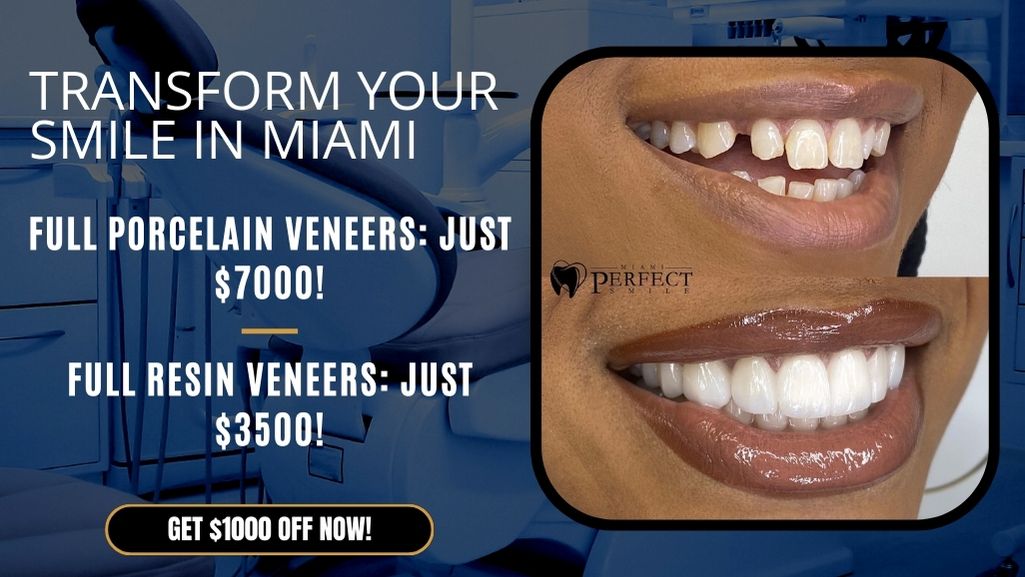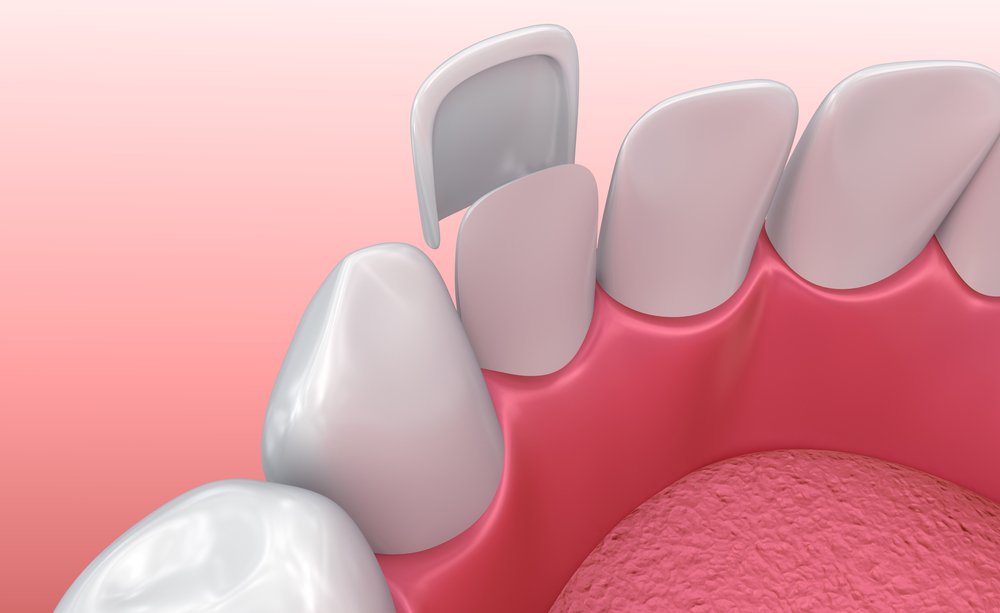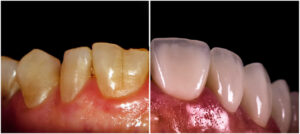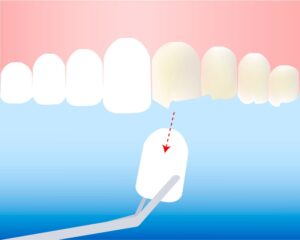The cost of full mouth veneers in the US can vary depending on a number of factors, such as the location, the materials used, the dentist’s experience, and the extent of the procedure. On average, the cost of a full mouth of veneers can range from $4,500 to $30,000 or more.
It’s important to note that this is only a rough estimate, and the actual cost can vary significantly based on individual circumstances. It’s recommended to consult with a licensed dentist to discuss your options and get a more accurate estimate for your specific case.
Ready for a stunning smile transformation? Discover unbeatable veneer specials in Miami and take the first step towards your dream smile. Don’t wait, schedule now and seize this limited-time opportunity!

Average Cost of Full Mouth Veneers in the US: Breakdown by State and Material
The average cost of full mouth veneers in the US by state and material, keep in mind that these are general estimates, and the actual cost can vary depending on a number of factors, including the dentist’s experience, the location, the materials used, and the complexity of the case.
Here are the average costs of full mouth veneers by state and material:
| State | Composite Veneers | Porcelain Veneers |
|---|---|---|
| Alabama | $5,000 – $8,000 | $10,000 – $20,000 |
| Alaska | $5,000 – $8,000 | $10,000 – $20,000 |
| Arizona | $5,000 – $8,000 | $10,000 – $20,000 |
| Arkansas | $5,000 – $10,000 | $10,000 – $20,000 |
| California | $7,000 – $12,000 | $15,000 – $30,000 |
| Colorado | $5,000 – $10,000 | $12,000 – $20,000 |
| Connecticut | $6,000 – $10,000 | $12,000 – $20,000 |
| Delaware | $6,000 – $10,000 | $12,000 – $20,000 |
| Florida | $4,500 – $8,000 | $7,500 – $15,000 |
| Georgia | $6,000 – $10,000 | $12,000 – $20,000 |
| Hawaii | $6,000 – $10,000 | $12,000 – $20,000 |
| Idaho | $6,000 – $10,000 | $11,000 – $30,000 |
| Illinois | $6,000 – $10,000 | $11,000 – $25,000 |
| Indiana | $6,000 – $10,000 | $11,000 – $30,000 |
| Iowa | $6,000 – $10,000 | $11,000 – $30,000 |
| Kansas | $6,000 – $10,000 | $11,000 – $30,000 |
| Kentucky | $6,000 – $10,000 | $12,000 – $20,000 |
| Louisiana | $6,000 – $10,000 | $12,000 – $30,000 |
| Maine | $6,000 – $10,000 | $12,000 – $30,000 |
| Maryland | $6,000 – $10,000 | $10,000 – $25,000 |
| Massachusetts | $6,000 – $10,000 | $10,000 – $25,000 |
| Michigan | $6,000 – $10,000 | $10,000 – $25,000 |
| Minnesota | $6,000 – $10,000 | $10,000 – $25,000 |
| Mississippi | $6,000 – $10,000 | $10,000 – $25,000 |
| Missouri | $6,000 – $10,000 | $10,000 – $25,000 |
| Montana | $6,000 – $10,000 | $10,000 – $25,000 |
| Nebraska | $6,000 – $10,000 | $12,000 – $30,000 |
| Nevada | $6,000 – $10,000 | $12,000 – $30,000 |
| New Hampshire | $6,000 – $10,000 | $12,000 – $30,000 |
| New Jersey | $6,000 – $10,000 | $12,000 – $30,000 |
| New Mexico | $6,000 – $10,000 | $12,000 – $30,000 |
| New York | $7,000 – $12,000 | $15,000 – $30,000 |
Factors that Influence the Cost of Full Mouth Veneers
There are several factors that can influence the cost of full mouth veneers. Here are some of the most important ones:
- Material: The type of material used for the veneers can have a significant impact on the cost. Porcelain veneers are generally more expensive than composite veneers, but they also tend to last longer and have a more natural appearance.
- Number of veneers: The total number of veneers required to cover all the teeth in the mouth will affect the overall cost of the procedure.
- Complexity of the case: If there are underlying dental issues that need to be addressed before the veneers can be placed, such as gum disease or tooth decay, this can add to the overall cost of the procedure.
- Dentist’s experience: The level of experience and expertise of the dentist performing the procedure can also impact the cost. A highly skilled and experienced dentist may charge more for their services.
- Location: The cost of living and operating a dental practice can vary significantly by location, which can also affect the cost of full mouth veneers.
- Additional services: Some dental practices may offer additional services, such as sedation or teeth whitening, which can increase the overall cost of the procedure.
What Are Full Mouth Veneers and Why Get Them?
Full mouth veneers are a cosmetic dental treatment that involves placing a thin layer of material, usually porcelain or composite resin, over the front surface of all the teeth in the upper and lower jaw. This procedure is often done for aesthetic purposes, to improve the appearance of teeth that are discolored, misaligned, chipped, cracked, or otherwise damaged.

Veneers are designed to mimic the natural appearance of teeth, with a translucent quality that allows them to blend in seamlessly with the surrounding teeth. They can also be custom-designed to match the shape, size, and color of the surrounding teeth, creating a uniform and natural-looking smile.
The decision to get full mouth veneers is a personal one, and the reasons for doing so can vary widely. Some of the most common reasons that people choose to get full mouth veneers include:
- Discolored or stained teeth that cannot be effectively treated with teeth whitening.
- Misaligned teeth that cannot be corrected with braces or other orthodontic treatments.
- Cracked or chipped teeth that are affecting the appearance of the smile.
- Gaps or spaces between teeth that are causing self-consciousness or embarrassment.
- A desire to improve the overall appearance of the smile and boost self-confidence.
If you’re considering full mouth veneers, it’s important to consult with a licensed dentist to discuss your options and determine if this treatment is right for you. They can also help you understand the potential risks and benefits of the procedure, and provide you with an estimate of the cost and timeline for treatment.
Pros and Cons of Full Mouth Veneers: Is it Worth the Investment?
Like any cosmetic dental procedure, full mouth veneers have both advantages and disadvantages. Here are some of the main pros and cons to consider before deciding if full mouth veneers are worth the investment:
| Pros | Cons |
|---|---|
| Improved appearance | Expensive |
| Long-lasting | Irreversible |
| Minimal preparation | Potential for damage |
| Stain-resistant | Limited lifespan |
| Minimal discomfort | Not suitable for all cases |
It’s important to carefully consider both the advantages and disadvantages before deciding if full mouth veneers are the right choice for you. Be sure to discuss your options and concerns with a licensed dentist who can help you make an informed decision.
How to Choose the Right Full Mouth Veneer Provider: Tips and Considerations
Choosing the right full mouth veneer provider is an important decision that can impact the overall success and satisfaction of your cosmetic dental treatment. Here are some tips and considerations to help you choose the right provider for your needs:
- Check qualifications: Look for a provider who is licensed and experienced in cosmetic dental procedures, and who has the necessary training and credentials to perform full mouth veneers.
- Review their portfolio: Ask to see before-and-after photos of previous patients who have received full mouth veneers from the provider. This can give you a good sense of their skill level and the quality of their work.
- Read reviews: Look for reviews and testimonials from previous patients online or on the provider’s website. This can give you an idea of the provider’s reputation and patient satisfaction.
- Ask about the materials used: Find out what type of materials the provider uses for their veneers, and whether they offer options to suit your preferences and budget.
- Consider the cost: Full mouth veneers can be expensive, so be sure to get a clear understanding of the cost of the procedure and any financing options that may be available.
- Evaluate the communication and rapport: Choose a provider who listens to your concerns, answers your questions, and makes you feel comfortable and confident throughout the process.
- Look for a provider who offers a comprehensive treatment plan: A good full mouth veneer provider will provide a thorough evaluation of your dental health, create a customized treatment plan, and offer ongoing care and support to ensure the success of your treatment.

By considering these tips and factors, you can choose a full mouth veneer provider who can help you achieve the smile you desire with confidence and peace of mind.
The Full Mouth Veneer Procedure: What to Expect
The full mouth veneer procedure typically involves several steps, including:
- Consultation and evaluation: The first step is to schedule a consultation with a licensed dentist who specializes in cosmetic dentistry. During the consultation, the dentist will evaluate your dental health, discuss your goals and expectations, and recommend a treatment plan that is customized to your needs.
- Preparation: Before the veneers can be placed, a small amount of the tooth enamel will need to be removed to create space for the veneers. This is typically done under local anesthesia to minimize discomfort.
- Impression: Once the teeth have been prepared, the dentist will take an impression of your teeth to create a mold that will be used to create the veneers.
- Temporary veneers: While the permanent veneers are being fabricated, temporary veneers may be placed to protect your teeth and improve their appearance.
- Placement: Once the permanent veneers are ready, the dentist will place them on your teeth using a special adhesive. The veneers will be carefully positioned and adjusted to ensure a comfortable fit and natural appearance.
- Follow–up: After the veneers have been placed, you will likely need to schedule a follow-up appointment to ensure they are properly adjusted and to monitor your dental health. You will also be given instructions on how to care for your veneers to ensure their longevity.
The full mouth veneer procedure can take several weeks to complete, depending on the complexity of your case and the materials used. However, the results can be dramatic, providing a natural-looking, uniform smile that can last for years with proper care.

Alternatives to Full Mouth Veneers: What Are Your Options?
While full mouth veneers can be a great option for improving the appearance of your smile, they may not be the right choice for everyone. Here are some alternatives to full mouth veneers that you may want to consider:
| Alternatives | Description |
|---|---|
| Teeth whitening | Uses a bleaching agent to remove surface stains and brighten teeth |
| Dental bonding | Applies a tooth-colored resin to the surface of teeth to improve appearance |
| Orthodontic treatment | Uses braces or clear aligners to straighten teeth and improve their appearance |
| Dental crowns | Places a cap over the entire tooth to improve its appearance and function |
| Gum contouring | Removes excess gum tissue to create a more balanced, attractive smile |
It’s important to discuss all of these alternatives with a licensed dentist to determine which option is best for your individual needs and goals. They can also help you understand the potential risks and benefits of each option and provide you with an estimate of the cost and timeline for treatment.
Full Mouth Veneer Aftercare: Tips for Long-Term Success
After getting full mouth veneers, it’s important to take good care of your teeth to ensure the long-term success of the treatment. Here are some tips for aftercare:
- Practice good oral hygiene: Brush your teeth twice a day with a soft-bristled toothbrush and fluoride toothpaste, and floss at least once a day to remove plaque and prevent tooth decay.
- Use a non-abrasive toothpaste: Avoid using toothpaste that is too abrasive, as this can scratch the surface of the veneers and cause them to lose their luster.
- Avoid hard or crunchy foods: Be careful when eating hard or crunchy foods, as these can potentially chip or damage the veneers. Stick to softer, non-sticky foods to avoid damaging the veneers.
- Wear a mouthguard: If you participate in contact sports or grind your teeth at night, wear a custom-fitted mouthguard to protect your veneers from damage.
- Avoid staining beverages: Avoid consuming beverages that can stain the veneers, such as coffee, tea, or red wine. If you do consume these beverages, rinse your mouth with water or brush your teeth afterwards to minimize the staining effects.
- Visit the dentist regularly: Schedule regular check-ups with your dentist to monitor the health of your veneers and ensure that they are functioning properly.
By following these tips and taking good care of your veneers, you can help ensure the long-term success of your treatment and maintain a beautiful, healthy smile.
References:
- Peumans, M., Van Meerbeek, B., Lambrechts, P., & Vanherle, G. (2000). Porcelain Veneers: A review of the literature. J Dent, 28(3), 163-177.







